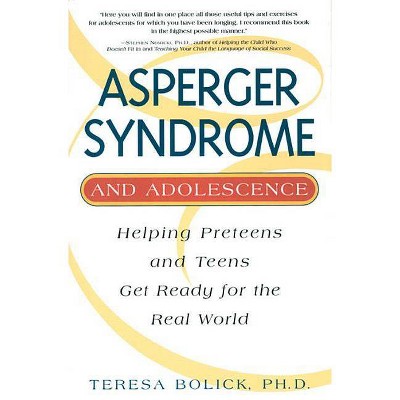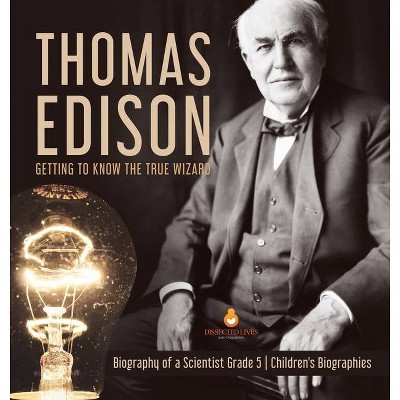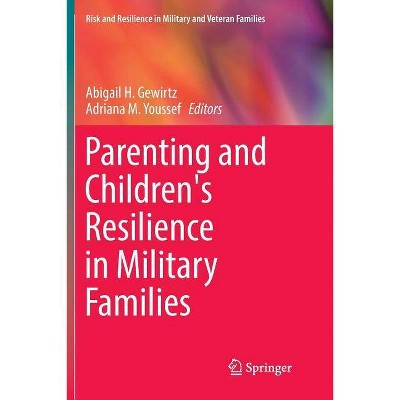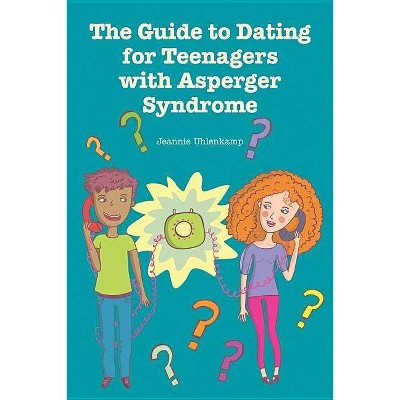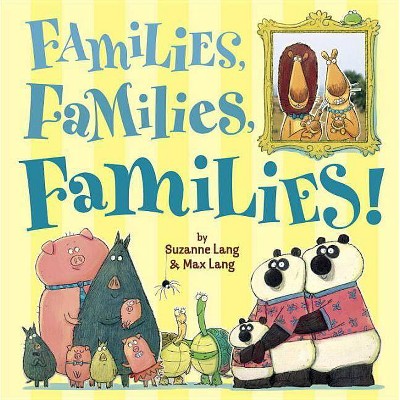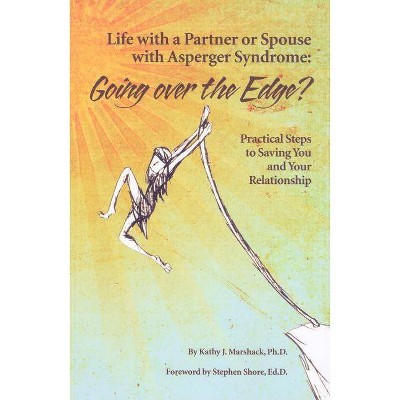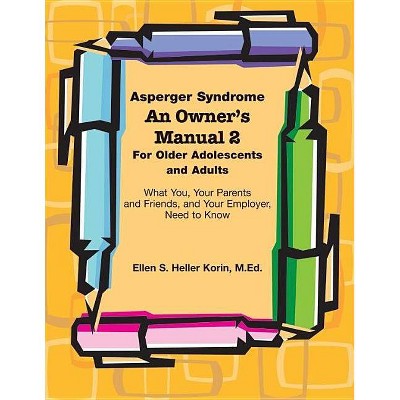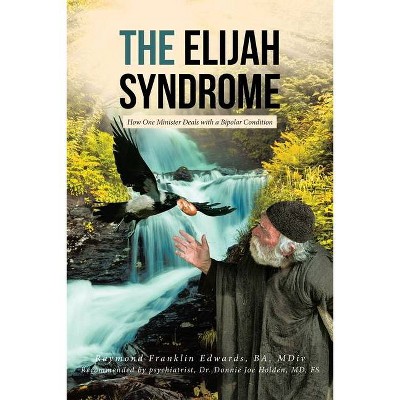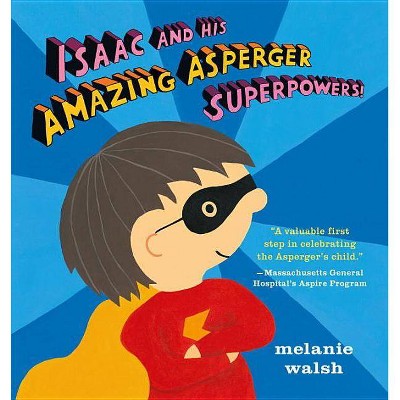Asperger Syndrome - (Issues in Children's and Families' Lives) 2nd Edition by Raymond W DuCharme & Thomas P Gullotta (Hardcover)
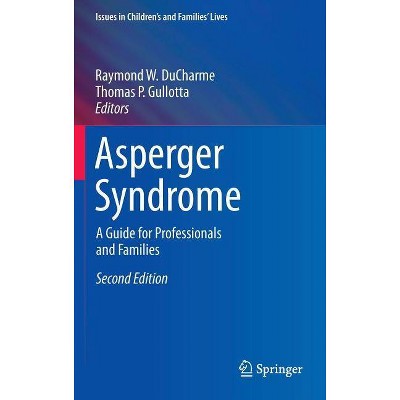
Similar Products
Products of same category from the store
AllProduct info
<p/><br></br><p><b> About the Book </b></p></br></br>This book explores the ongoing treatment and education needs of children with Asperger Syndrome. It examines a variety of therapeutic, educational, and social skills strategies for use at home as well as in classrooms and other community settings.<p/><br></br><p><b> Book Synopsis </b></p></br></br><p>Preface; <i>Thomas P. Gullotta</i>.- Chapter 1: What We Know About Asperger Syndrome: Epidemiology and Etiology; <i>Alexia Metz</i>.- Chapter 2: Assessment and Diagnosis of Asperger Syndrome; <i>Ruth Aspy, Barry G. Grossman</i>.- Chapter 3: Counseling and Other Therapeutic Strategies for Children with AS and Their Families; <i>Sherrie Sharp</i>.- Chapter 4: Early Intervention for Children/Youth with Asperger Syndrome; <i>Mary Baker-Ericzén</i>.- Chapter 5: Building Social Skills Instruction for Children With Asperger Syndrome; <i>Brenda Smith Myles, The Ziggurat Group</i>.- Chapter 6: Evaluating Evidence-Based Instruction for Children with Asperger Syndrome; <i>Raymond W. DuCharme</i>.- Chapter 7: Comprehensive Education-Based Mental Health Services for Students Diagnosed on the Autism Spectrum; <i>Raymond W. DuCharme, Kathleen A. McGrady, Jayantkumar K. Patel, Gualberto Ruaño</i>.- Chapter 8: Living with AS: Real Issues, Practical Advice for Families with School-aged Children; <i>Jennifer Blackwell</i>.</p><p/><br></br><p><b> From the Back Cover </b></p></br></br><p>Since the first edition was published in 2003, an enormous amount of research into Asperger Syndrome (AS) and autism spectrum disorders has been conducted. New genetic and epigenetic theories, updated findings on viable therapies, and targeted skill-building programs provide a solid foundation of information for professionals to use in practice and impart to concerned families. </p><p>The Second Edition of <i>Asperger</i> <i>Syndrome</i> synthesizes the current state of the field, beginning with the controversy over the proposed linking of the condition with autism in the DSM-5. This comprehensive guide gives readers a deeper understanding of the disorder, detailing the effective strategies and therapies available to improve the lives of young people with AS and ensure their successful transition from childhood to adolescence to adulthood. Focusing on core deficit and treatment areas, expert contributors analyze the evidence base on behavioral and pharmacological interventions as well as educational strategies geared toward bolstering cognitive and social skills.</p><p>In addition to epidemiology, etiology, diagnosis, and assessment, this volume offers the most current information on: </p><ul><li>Counseling and other therapeutic strategies for children with AS and their families.</li><li>Early intervention for children and youth with AS.</li><li>Social skills instruction for children with AS.</li><li>Evaluating evidence-based instruction for children with AS.</li><li>Comprehensive education-based mental health services for students diagnosed on the autism spectrum.</li>Practical advice for families, from a parent of a child with AS.</li></ul><p>The Second Edition of <i>Asperger</i> <i>Syndrome</i> is an essential reference for researchers, clinicians, and scientist-practitioners in clinical child, school, and developmental psychology; child and adolescent psychiatry; education; rehabilitation medicine/therapy; social work; and pediatrics. </p><p/><br></br><p><b> About the Author </b></p></br></br><p><b>Raymond W. DuCharme, Ph.D., </b> is the founder and Executive Director of The Learning Clinic, Inc. (TLC), a private, not-for profit educational and treatment program for children and adolescents. Dr. DuCharme has been a researcher, teacher, and Assistant Professor at Brown University, Adjunct Professor of Educational Psychology at University of Connecticut, and Associate in Psychiatry at University of Massachusetts Medical Center. He is a national consultant and author of Asperger Syndrome: A Guide for Professional and Families, textbook chapters, papers, assessment protocols and articles on the subjects of treating and educating students with Autism Spectrum Disorders. The overarching goal is the student's success--a goal that (1) defines our core purpose; (2) is feasible for each child, (3) poses challenges to teacher and student and family, (4) has larger significance that any singular goal and (5) sums up everyone's endeavors at The Learning Clinic.</p> <p><b>Thomas P. Gullotta, Ph.D., </b> is C.E.O. of Child and Family Agency and a member of the psychology and education departments at Eastern Connecticut State University. He is the senior author of the 4th edition of The Adolescent Experience, co-editor of The Encyclopedia of Primary Prevention and Health Promotion, and editor emeritus of the Journal of Primary Prevention. He is the senior book series editor for Issues in Children's and Families' Lives. Tom holds editorial appointments on the Journal of Early Adolescence, The Journal of Adolescent Research and the Journal of Educational and Psychological Consultation. He has published extensively on adolescents and primary prevention. Tom was honored in 1999 by the Society for Community Research and Action, Division 27 of the American Psychological Association with their Distinguished Contributions to Practice in Community Psychology Award.</p>
Price History
Price Archive shows prices from various stores, lets you see history and find the cheapest. There is no actual sale on the website. For all support, inquiry and suggestion messagescommunication@pricearchive.us
